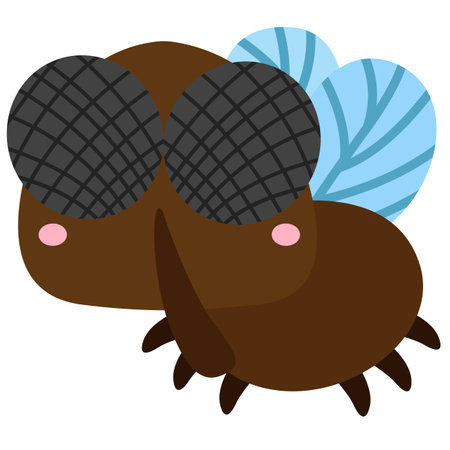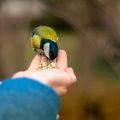Introduction to Tarantula and Insect Keeping in the UK
Tarantula and insect keeping has emerged as a fascinating and increasingly popular hobby across the United Kingdom. Over the past few decades, British enthusiasts have developed a keen interest in the world of exotic invertebrates, transforming what was once considered an unusual pursuit into a vibrant subculture. This unique hobby is marked not only by its diversity of species but also by a growing sense of community among keepers who share knowledge, experiences, and best practices. Attitudes towards owning exotic pets such as tarantulas, stick insects, and mantises have gradually shifted from scepticism to curiosity and appreciation. While traditional pets like cats and dogs remain prevalent in British households, there is a noticeable rise in those seeking alternatives that offer both educational value and a window into the natural world. Today, tarantula and insect keeping is celebrated for its contribution to biodiversity awareness and responsible pet ownership, making it an integral part of modern British pet culture.
2. Early History and Influences
The tradition of keeping tarantulas and insects in the UK can be traced back to a rich tapestry of historical events, cultural movements, and influential individuals. During the Victorian era (1837–1901), fascination with the natural world reached unprecedented heights. The British public was captivated by exotic creatures, and collecting insects became both a scientific pursuit and a fashionable hobby among the upper classes. This period laid the foundation for modern interest in tarantula and insect keeping.
The Victorian Obsession with Nature
Victorian society’s curiosity about the diversity of life was fuelled by expanding global exploration and colonial expeditions. Natural history cabinets, also known as “cabinets of curiosities,” became popular in wealthy households. These collections often featured exotic insects, spiders, and other arthropods brought back from far-flung territories. Not only did this reflect social status, but it also spurred amateur naturalists to study and document Britain’s own native species.
Influential British Naturalists
The rise in entomology and arachnology was further propelled by eminent British naturalists whose work inspired generations. Notable figures include:
| Name | Contribution |
|---|---|
| Charles Darwin | Advanced evolutionary theory; collected beetles and studied insect behaviour during his youth. |
| Alfred Russel Wallace | Explored the Malay Archipelago; documented thousands of insect species. |
| Miriam Rothschild | Pioneered research on fleas and butterflies; advocated for conservation. |
| William Kirby | Regarded as the “Father of Entomology” in Britain; co-authored foundational texts on insects. |
Cultural Impact and Lasting Legacy
This early enthusiasm for collecting and studying insects permeated British culture well into the 20th century. Illustrated field guides, museum exhibitions, and local entomological societies encouraged hands-on engagement with nature. Through education, scientific discovery, and a passion for preserving biodiversity, these early influences continue to shape the popularity of tarantula and insect keeping in the UK today.

3. Growth of the Hobby: Late 20th Century Onwards
From the 1970s onwards, the keeping of tarantulas and other exotic invertebrates experienced a marked increase in popularity across the UK. This era was characterised by a growing fascination with unusual pets, fuelled in part by advances in global transport and communication. The late 20th century saw pet shops in Britain begin to stock a wider array of species beyond the traditional cats, dogs, and birds, appealing to hobbyists seeking something out of the ordinary. As enthusiasts shared knowledge through printed magazines, clubs, and later online forums, interest in tarantulas and insects flourished among all age groups.
Changes in importation laws during this time also had a significant impact on the hobby. The introduction of stricter regulations regarding wildlife trade — notably the implementation of CITES (the Convention on International Trade in Endangered Species) — led to more responsible sourcing and improved welfare standards for imported animals. While these changes limited some species availability, they encouraged captive breeding initiatives within the UK. British breeders began to specialise in tarantulas, stick insects, mantids, and other exotics, providing local options for prospective keepers and reducing reliance on wild-caught specimens.
The rise of reptile and exotic pet shows throughout the country further supported the growth of this hobby. These events provided opportunities for education, networking, and access to reputable sellers, helping to ensure that new hobbyists received guidance on proper husbandry and ethical care. The increased visibility of tarantula and insect keeping helped destigmatise these animals, shifting public perception from fear or revulsion towards appreciation for their ecological roles and fascinating behaviours.
4. Clubs, Societies, and Community Engagement
The growth of tarantula and insect keeping in the UK has been significantly shaped by the establishment of specialist clubs, societies, and a thriving online community. These organisations have provided enthusiasts with invaluable resources, educational opportunities, and a sense of camaraderie that has helped to normalise and promote responsible insect husbandry.
The Role of Specialist Societies
Specialist societies such as The British Tarantula Society (BTS), founded in 1985, have played a pioneering role in fostering interest and expertise in arachnid and insect care. Through regular meetings, newsletters, and research publications, these groups have elevated public understanding and encouraged best practices among keepers. They also offer platforms for sharing experiences, troubleshooting husbandry issues, and promoting ethical sourcing of species.
Exhibitions and Public Events
Annual exhibitions such as the BTS Exhibition in Coventry and various regional bug shows have become focal points for the UK’s growing community of invertebrate enthusiasts. These events provide opportunities for face-to-face engagement, live demonstrations, workshops, and access to expert advice. Visitors can view rare species, purchase captive-bred specimens, and engage directly with breeders and fellow hobbyists.
Key Benefits of Exhibitions
| Benefit | Description |
|---|---|
| Education | Live talks and Q&A sessions on species care and conservation |
| Networking | Opportunities to meet other keepers, researchers, and traders |
| Conservation Awareness | Promotion of sustainable breeding practices over wild collection |
| Access to Resources | Availability of rare equipment, literature, and captive-bred stock |
The Impact of Online Forums and Social Media Groups
With the rise of digital communication, online forums like The Reptile Forums UK and dedicated Facebook groups have become vital hubs for advice-sharing and community support. These platforms enable real-time discussion on care techniques, legislation updates, health issues, and ethical debates—helping new hobbyists avoid common mistakes while reinforcing responsible ownership values.
Popular UK-Based Online Communities for Enthusiasts:
| Community Name | Main Focus | Membership Reach |
|---|---|---|
| The British Tarantula Society Forum | Tarantula care & breeding information | Thousands across the UK & Europe |
| The Reptile Forums UK – Inverts Section | General invertebrate discussion & advice | Diverse national audience |
| UK Bug Keepers Facebook Group | Pier-to-pier support & identification help | Rapidly growing digital community |
Together, these clubs, societies, exhibitions, and digital communities form the backbone of the UK’s tarantula and insect keeping culture. By facilitating knowledge exchange, promoting welfare standards, and encouraging social responsibility, they ensure that this fascinating hobby continues to thrive within an informed and supportive environment.
5. Current Trends and British Culture
The current landscape of tarantula and insect keeping in the UK is deeply influenced by contemporary British culture, reflecting broader shifts in attitudes towards exotic pets, conservation, and education. In recent years, there has been a notable increase in public interest, not just among enthusiasts but also within mainstream society. This trend is shaped by several key factors unique to the British context.
Conservation and Responsible Keeping
British culture places a strong emphasis on animal welfare and environmental responsibility. As a result, many hobbyists are now more conscious of ethical sourcing and the impact of their collections on wild populations. Conservation efforts are often integrated into the hobby, with initiatives to support captive breeding programs and reduce reliance on wild-caught specimens. Organisations such as the British Tarantula Society actively promote responsible keeping practices and advocate for sustainable trade, aligning the hobby with national values regarding biodiversity protection.
Educational Initiatives
Education plays a significant role in shaping perceptions of tarantulas and insects across the UK. Schools, museums, and community groups frequently incorporate live exhibits and interactive workshops into their programmes, helping to dispel myths and foster curiosity about these misunderstood creatures. British natural history television—iconic globally for its educational content—has also contributed to normalising tarantula and insect keeping by showcasing their ecological importance and fascinating behaviours.
Integration into Mainstream Pet Culture
Tarantula and insect keeping has gradually moved from niche circles into mainstream pet culture. High street pet shops increasingly offer supplies, specialist clubs host well-attended expos, and online forums provide accessible guidance for newcomers. The rise of social media influencers within the UK pet community further popularises the hobby, making it more approachable for families and individuals alike. Importantly, the British penchant for careful research and planning means that new keepers often seek out expert advice before acquiring exotic pets, supporting a culture of informed care.
A Reflection of Modern British Values
Ultimately, the current trends in tarantula and insect keeping mirror wider themes in contemporary British society: respect for nature, commitment to education, and an openness to new experiences. As conservation and responsible ownership remain at the forefront, the hobby continues to thrive while contributing positively to both animal welfare and public understanding.
6. Legislation, Welfare, and Ethical Considerations
The keeping of tarantulas and insects as pets in the UK is shaped by a robust legal framework designed to ensure both public safety and animal welfare. While invertebrates such as tarantulas and most exotic insects are not covered by the Dangerous Wild Animals Act 1976, keepers must still adhere to broader legislation such as the Animal Welfare Act 2006. This act requires all pet owners, including those who keep exotic invertebrates, to provide for the welfare needs of their animals—offering appropriate housing, nutrition, environmental enrichment, and prompt veterinary care when necessary.
Licensing requirements may apply for commercial breeders or those selling invertebrates at scale, with local authorities responsible for enforcement. Importation and trade are regulated under CITES (the Convention on International Trade in Endangered Species of Wild Fauna and Flora), which restricts or controls the trade of certain protected species. Keepers must be vigilant about the legal status of the species they acquire, as illegal importation can result in prosecution and confiscation of animals.
Welfare standards within the hobby are increasingly informed by guidelines from professional organisations such as the British Tarantula Society and various entomological societies. These groups promote best practice husbandry, ethical breeding, and education to help prevent neglect or unintentional harm. Ethical considerations are also at the forefront: enthusiasts debate issues such as wild-caught versus captive-bred specimens, responsible sourcing, and the impact of the pet trade on wild populations.
There is growing awareness about the potential risks associated with invasive species should non-native insects or spiders escape into the wild. As a result, ethical keepers emphasise secure enclosures and advocate for responsible ownership. Public attitudes toward invertebrate keeping continue to evolve, with an increasing focus on conservation-minded practices and educating new keepers about their responsibilities.
Ultimately, while tarantula and insect keeping remains a niche interest in the UK, it is governed by clear legal requirements that prioritise animal welfare and public safety. By following these frameworks and engaging with ongoing ethical debates, UK enthusiasts can enjoy their hobby while contributing positively to both animal care standards and wider environmental stewardship.
7. Conclusion: The Future of Tarantula and Insect Keeping in the UK
Looking ahead, the future of tarantula and insect keeping in the UK appears both promising and dynamic. With a steadily growing community of enthusiasts, advancements in husbandry techniques, and increased public awareness about the ecological importance of these fascinating creatures, the hobby is set to continue its upward trajectory. However, several factors will shape its development in the coming years.
Opportunities for Growth and Education
The rise in popularity offers a unique opportunity to promote responsible pet ownership and conservation. British keepers are increasingly engaging with scientific research, captive breeding programmes, and educational outreach—helping to demystify arachnids and insects while fostering respect for biodiversity. Educational institutions and museums may further integrate live exhibits, sparking curiosity among younger generations and encouraging careers in entomology or wildlife conservation.
Challenges on the Horizon
Despite these positive trends, challenges remain. Regulatory changes post-Brexit have impacted the import and export of exotic species, potentially limiting access to certain specimens. There are also ethical considerations regarding wild-caught versus captive-bred animals, as well as concerns about invasive species and biosecurity. Addressing these issues will require continued collaboration between hobbyists, scientists, policymakers, and animal welfare organisations.
The Role of Technology and Community
Technological advances—such as improved enclosures, environmental controls, and online platforms—are making it easier for British keepers to share knowledge and source supplies responsibly. Social media groups and forums continue to strengthen the sense of community within the UK scene, providing support for newcomers and facilitating best practice sharing across the country.
A Balanced Outlook
Ultimately, the future of tarantula and insect keeping in the UK depends on balancing enthusiasm with responsibility. By prioritising education, ethical sourcing, and conservation-minded practices, British enthusiasts can ensure that this rewarding hobby remains both sustainable and respected within society. With careful stewardship and ongoing innovation, the UK’s tarantula and insect keeping scene is well-placed to thrive for many years to come.


